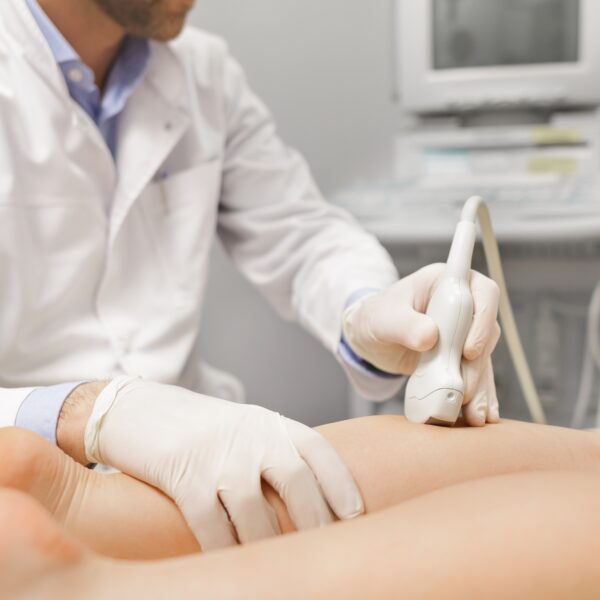
Understanding Venous Insufficiency and Treatment Options
In vascular health, vein procedures serve as vital tools, offering relief and restoration for conditions like venous insufficiency. But navigating this landscape requires a nuanced understanding of diagnosis, treatment options, and potential outcomes. In our latest blog post, we expand on our recent podcast episode, in which we talked about vein procedures with one of our medical providers, Dr. Bryan Kirkland. We will break down the complexities of venous insufficiency as Dr. Kirkland shares invaluable insights into diagnosis, risk factors, and cutting-edge treatment modalities.
Understanding Venous Insufficiency
Venous insufficiency may sound like a daunting term, but at its core, it refers to a condition where veins struggle to return blood to the heart efficiently. As Dr. Kirkland explains in our recent podcast episode, the circulatory system comprises arteries and veins, with veins responsible for transporting blood back to the heart. However, when veins weaken or become worn out, they fail to maintain adequate pressure, impairing blood flow. This often manifests in symptoms such as leg swelling, pain, heaviness, cramping, and skin changes.
Diagnosis and Risk Factors
Identifying venous insufficiency involves a straightforward ultrasound and examination. Various risk factors, including genetics, aging, multiple pregnancies, prolonged standing, and smoking, can predispose individuals to this condition. Recognizing symptoms and risk factors early allows for timely intervention and prevents the progression of venous insufficiency.
Treatment Options
Several treatment options offer relief for individuals experiencing venous insufficiency. Conservative measures such as compression stockings, leg elevation, and regular exercise can alleviate symptoms in the early stages. However, more advanced interventions may be necessary when symptoms persist or worsen.
Vein Ablation Procedures
Vein ablation procedures, performed by skilled physicians like Dr. Kirkland, offer a minimally invasive solution for venous insufficiency. These procedures involve closing off diseased veins using either heat (radio frequency ablation) or an adhesive substance. By sealing off problematic veins, blood is rerouted through healthier vessels, restoring proper circulation.
Pre- and Post-Procedure Care
Before undergoing vein ablation, patients may need to temporarily discontinue certain blood-thinning medications. However, the procedure itself is performed in-office under local anesthesia, with minimal discomfort. Following the procedure, patients are encouraged to resume light activities promptly and wear compression stockings for a few days to optimize recovery.
The Reward of Relief
The impact of vein ablation procedures extends far beyond physical relief. Patients often report significant improvements in symptoms, including reduced swelling, pain, and discomfort. Dr. Kirkland’s experience underscores the transformative potential of these interventions in enhancing patients’ quality of life.
Conclusion
Venous insufficiency may present challenges, but effective treatments are within reach with advancements in medical technology and skilled practitioners like Dr. Kirkland. Individuals can take proactive steps toward reclaiming their comfort and mobility by demystifying vein procedures and understanding the underlying condition.
Our medical providers can provide support and guidance surrounding vein procedures. Please call our office to schedule a consultation at 770-464-0280.
Subscribe to our newsletter, The Wellness Round-Up, to receive the latest news, events, and preventative health tips, along with Dr. Plaster’s resource, “Five Tips to Better Health.”Subscribe to the Between Two White Coats podcast for bi-weekly episodes. Please leave us a rating and review; this will help others find our podcast.